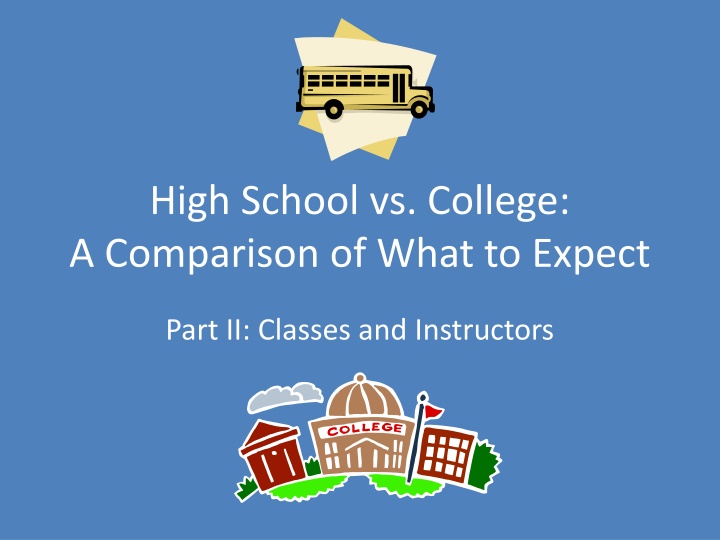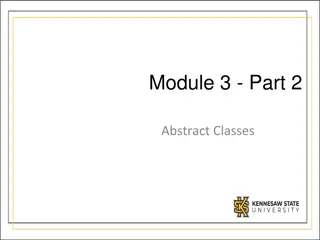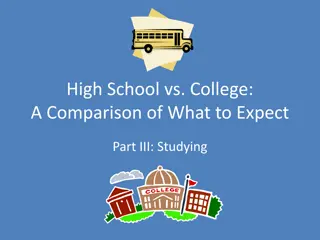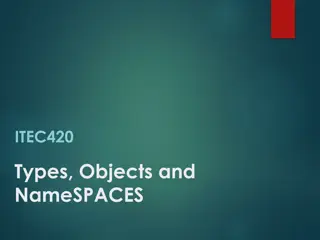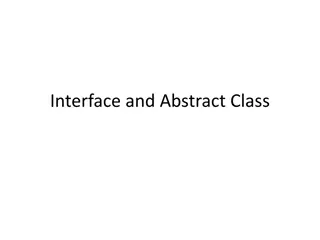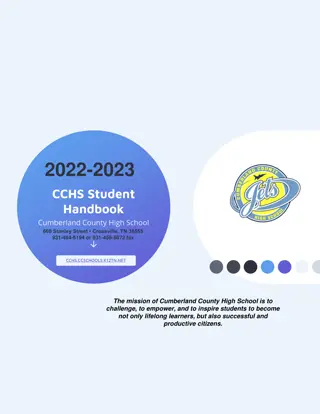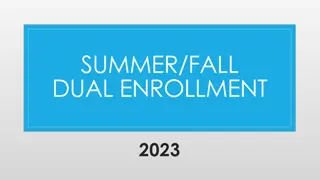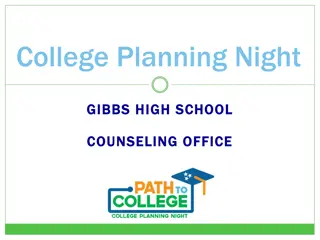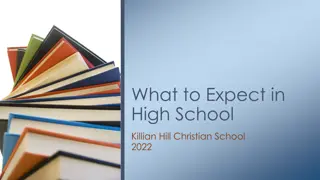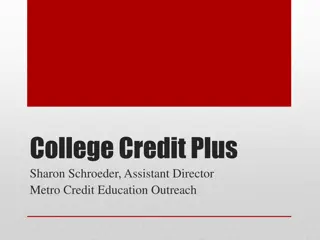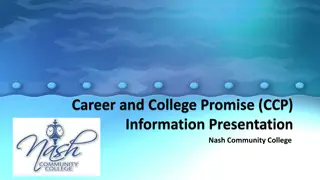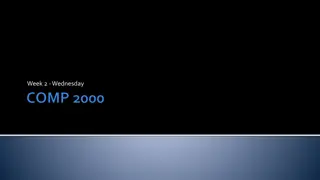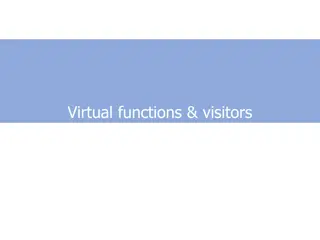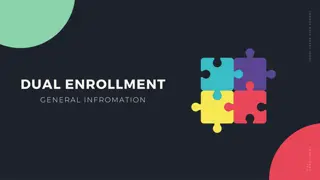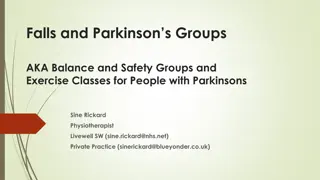Contrasting High School and College: Classes and Instructors
Delve into the distinctions between high school and college regarding classes and instructors. Explore differences in scheduling, class size, textbook costs, attendance policies, and instructor approaches to homework and reminders.
Download Presentation

Please find below an Image/Link to download the presentation.
The content on the website is provided AS IS for your information and personal use only. It may not be sold, licensed, or shared on other websites without obtaining consent from the author.If you encounter any issues during the download, it is possible that the publisher has removed the file from their server.
You are allowed to download the files provided on this website for personal or commercial use, subject to the condition that they are used lawfully. All files are the property of their respective owners.
The content on the website is provided AS IS for your information and personal use only. It may not be sold, licensed, or shared on other websites without obtaining consent from the author.
E N D
Presentation Transcript
High School vs. College: A Comparison of What to Expect Part II: Classes and Instructors
High School College Students (along with their advisors) create their own schedules and manage their own time. Students follow a school-directed schedule and are told how to spend their time.
High School College Classes are determined by state/district requirements. Classes are determined by field of study. Requirements may vary widely among majors. All students follow a similar curriculum.
High School College Class attendance is mandatory and monitored. Attendance policies vary by professor.
High School College Classes may have anywhere from 5 to more than 100 students. Classes usually do not have more than 30 35 students.
High School College Students must buy textbooks, which can be expensive. (Average cost is $200 $400 per semester) Textbooks are usually free or provided at little expense.
High School College Students spend approximately 6 hours per day (30 hours per week) in class and proceed directly from one class to the next. Students spend only 12 16 hours per week in class and often have several hours between classes.
High School College Professors seldom check or grade homework but assume that students have completed it and are able to perform the same tasks on a test. Teachers check and grade completed homework.
High School College Professors usually do not remind students of incomplete work. Teachers may remind students of incomplete assignments. It is the student s responsibility to ensure requirements are being met.
High School College Professors may lecture nonstop and write on the board only to support the lecture, not to summarize it. Teachers often write information on the board or overhead projector to be copied for notes. Good note-taking skills are essential.
High School College Teachers often take class time to remind students of test dates and assignments. Professors expect students to read, save, and refer back to the course syllabus.
High School College Professors have been trained as experts in their area of research and may never have been taught how to teach. Teachers have been trained in teaching methods to assist in imparting knowledge to students.
High School College Teachers teach knowledge and facts, drawing direct connections and leading students through the thinking process. Professors expect students to think independently and connect seemingly unrelated information on their own.
High School College Professors expect the student to initiate contact if the student is struggling in the class. Teachers often approach a student if they believe the student needs help in the class.
High School College Professors expect students to attend their scheduled office hours if they need to talk to them. Professors often have somewhere else to be before and after class and won t take time away from the lecture for conversations. Teachers are often available for conversations before, during, or after class.
This work is licensed under a Creative Commons Attribution-NonCommercial 3.0 Unported License.
